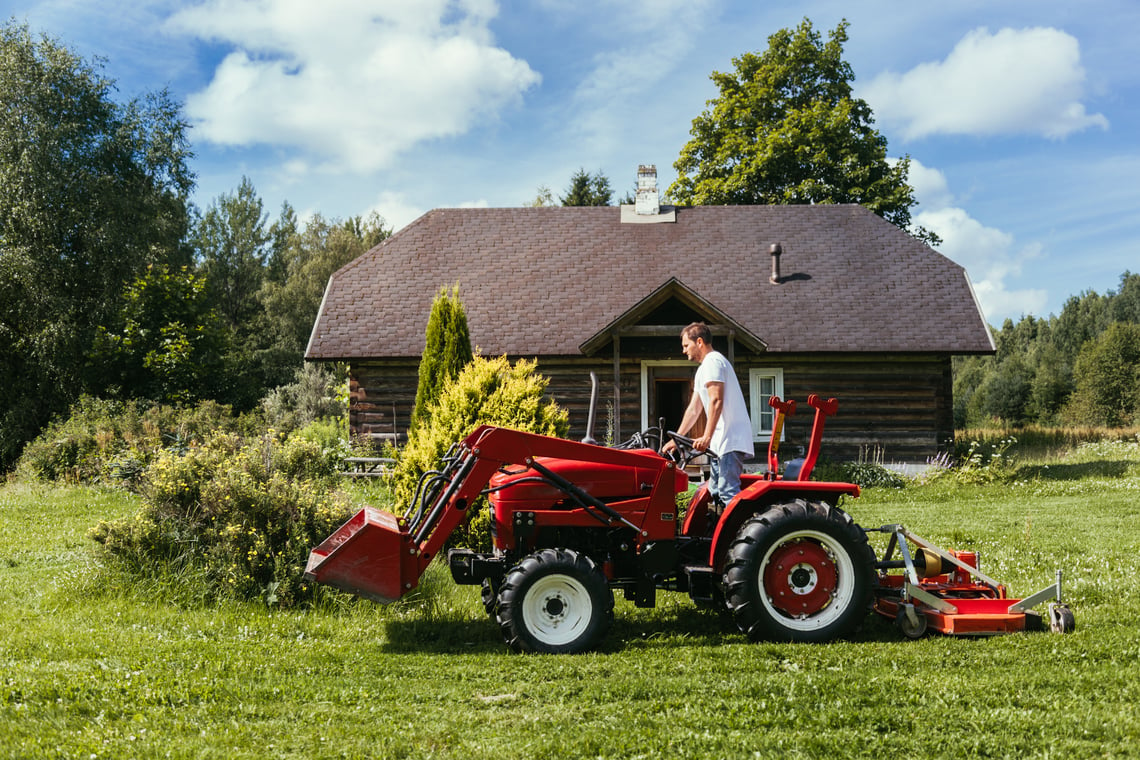Whether you’ve got 5 or 55 acres; a full-time homestead or a recreational tract, there is some equipment the vast majority of rural dwellers shouldn’t go without. An expert shares his advice on which tools, toys and tractors are best suited for your rural land.
The right equipment can not only lighten your workload when it comes to maintaining rural acreage, it can enhance your overall enjoyment of the land. Which really is the whole point, says Sammy Johnson, owner of Johnson Fleet and Farm in Yulee, Florida.
Johnson has been in the hardware business for 30 years and sells tractors and farm equipment out of his store’s flagship location. All too often he sees landowners who don’t want to spend money on big equipment like tractors or right-sized lawnmowers until after the work is done. Instead, they gut it out, sacrificing time and enjoyment in the process.
“When you buy into that rural lifestyle [or] a recreational piece of property you’re going to need some tools to make it enjoyable,” he says. “If you want to enjoy yourself to the maximum ability you need to curate the proper tools to do that.”
The Basics
Lawnmower
“The first thing [you’re] going to need is a lawnmower,” says Johnson. “We have folks all the time getting ready to buy property and it’s one of the first purchases they want to make even prior to buying property.”
The type of mower depends on the area of grass you have to cut and how often you need to mow. A right-sized riding mower can mean the difference between days out in the yard versus a few hours.
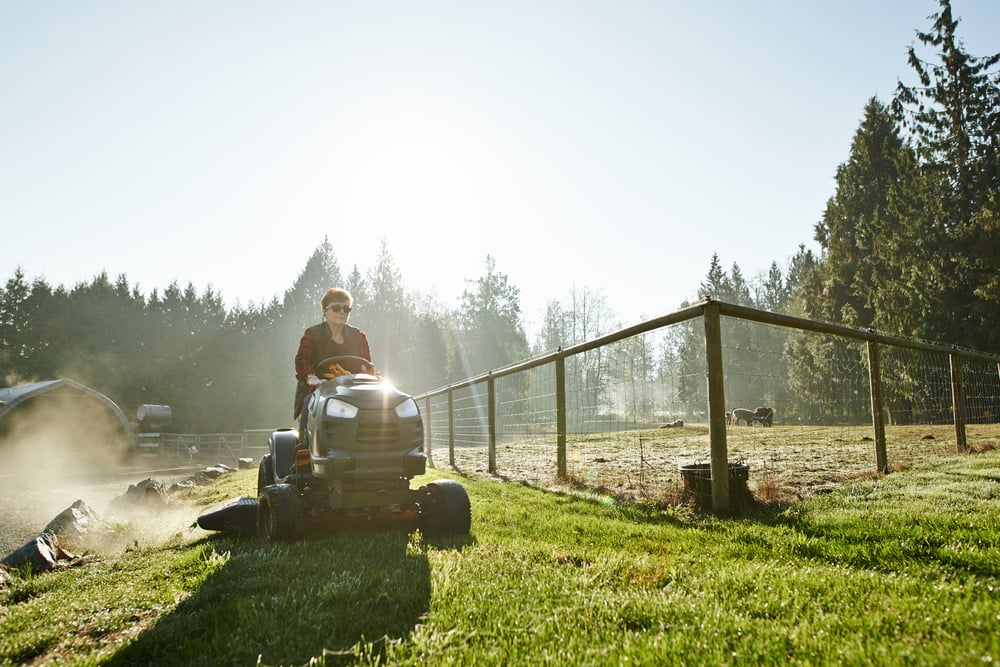
Lawn/garden tractors are what probably first comes to mind when you picture a riding mower. These compact machines can be a reasonably priced choice for properties up to three acres or so, provided the terrain is relatively flat. John Deere has created this chart to help consumers gauge the type of lawn tractor they need based on property size.
The next step up would be a zero-turn mower. Johnson recommends a zero-turn mower for properties ¼ acre and up. Zero-turn models allow for easier maneuvering around obstacles and a quicker overall mow, especially if your property has a number of trees. Most zero-turn mowers are operated with two levers rather than a steering wheel, allowing the operator more control.
A word to the wise: According to Today’s Mower, neither lawn tractors nor zero-turn mowers are designed to mow slopes greater than about 15 degrees. And while there are machines built to handle steeper hills, they can range from $10,000 to over $50,000.
Tractor
A tractor is among your most versatile and useful equipment purchases. The size and horsepower behind this rural workhorse depends on what you need it to do.
“We sell a lot of sub-compact tractors,” says Johnson. “They are very versatile, small tractors that you can use as mowers, they can have post hole diggers, you can have a small bucket on the front of it or a backhoe or excavators so you can dig holes or ditches or clean out ditches.”
Sub-compacts are perfect for those with 5 acres and below.
For more than that, “You're going to need a bigger tractor based on the kind of material you're having to move around a bigger piece of property,” he says. “From 5 to 15 acres, I’d say, 25 to 40 horsepower. … Then once you get into the 15 to 500 acres, you’re going to need 40 horsepower and above.”
For clearing raw land for building, for example you’ll need a heavy-duty machine. Will Nelson, owner of Nelson Tractor Company offers some advice on choosing the right tractor for land clearing.
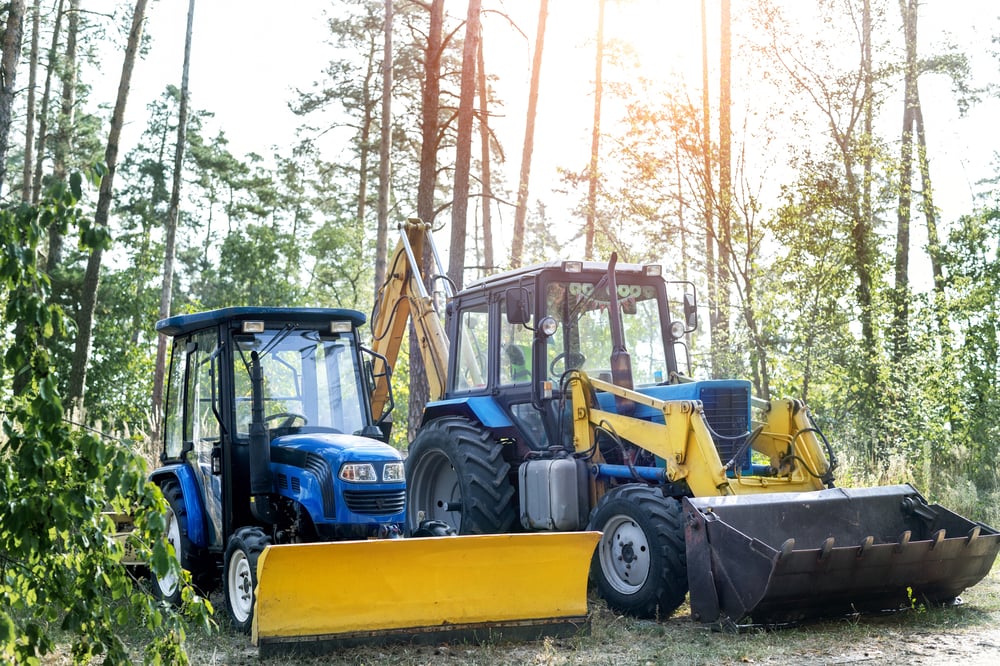 But he notes, the equipment you’ll need for clearing heavily wooded land is not the same as the more detail-oriented machines used for things like daily garden tasks.
But he notes, the equipment you’ll need for clearing heavily wooded land is not the same as the more detail-oriented machines used for things like daily garden tasks.
“You don't want to buy one tractor for clearing and stumping only to then trade it in for a smaller unit to do the finish work,” Nelson explains. “Clearing land requires more power while gardening, landscaping and trail maintenance is considered more finish work; you just can't find a piece of equipment that is great for both tasks.”
Nelson recommends keeping this in mind when making a tractor purchase. It may be wise to hire out big, one-time jobs like clearing your plot for building and invest your tractor dollars in a machine that will suit the day-to-day jobs of your homestead.
The Tools
Beyond heavy equipment there are power and hand tools that will make your rural life easier. “At minimum, you’ll need a trimmer [and] a chainsaw,” notes Johnson.
As with any equipment, consider how much you’ll use it. Often rural living requires a slightly heavier duty tool than residential life.
Chainsaws, for example, come in two broad categories: residential and commercial. You’ll pay slightly more for a commercial version but for good reason.
According to Elliot Recreational Properties’ Pete Rogers, “[Residential] machines are built with a very low maximum lifespan. Most homeowner versions are designed to work up to 100 hours. That translates to a very short life for the landowner and recreational property owner. Conversely, the commercial saw is designed for around 2,500 hours of runtime. As you can see there is quite the difference between these two versions. And interestingly, the cost factor is not that great between the two.”
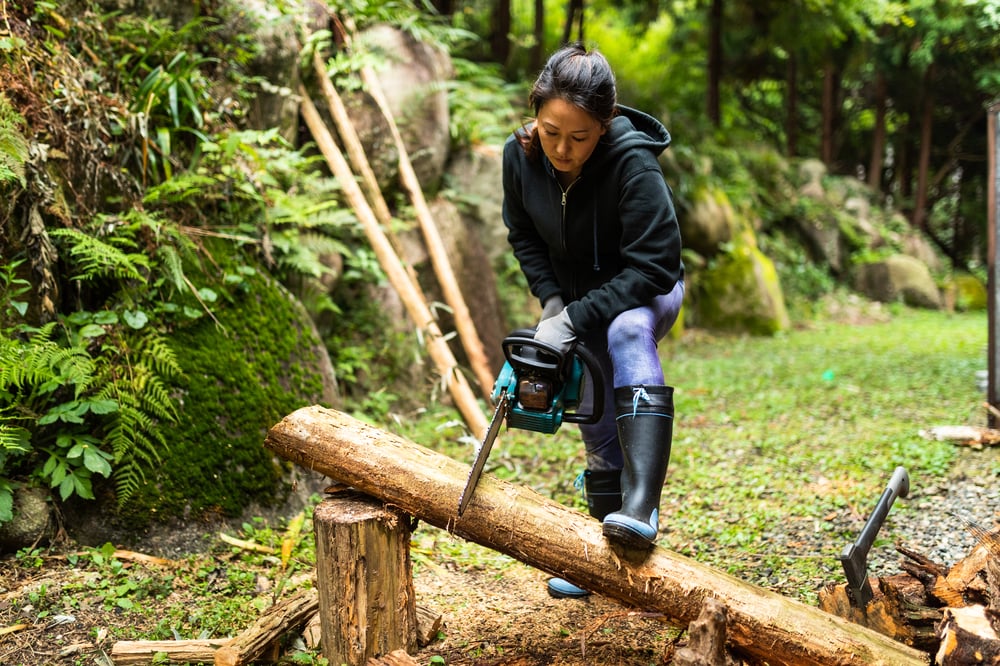
If you have a wooded lot, you’ll want to be equipped to care for vegetation. Check out L. Woodrow Ross’ feature on Everything You Need to Know About Pruning for a list of tools and tips.
In the interest of working smarter, not harder, consider an attachment capable string trimmer. You can attach a pole trimmer, edger, cultivator, brush cutter, hedge trimmer and even blower to one base.
Task specific tools, like a manure spreader and composter for avid gardeners and a stump grinder for heavily wooded lots also come in handy.
Finally, don’t overlook the value of a simple utility cart. Whether hand-pulled yard carts or a cart that attaches to an ATV or lawn tractor (or both) the power to pull and haul without breaking your back is invaluable.
The Transport
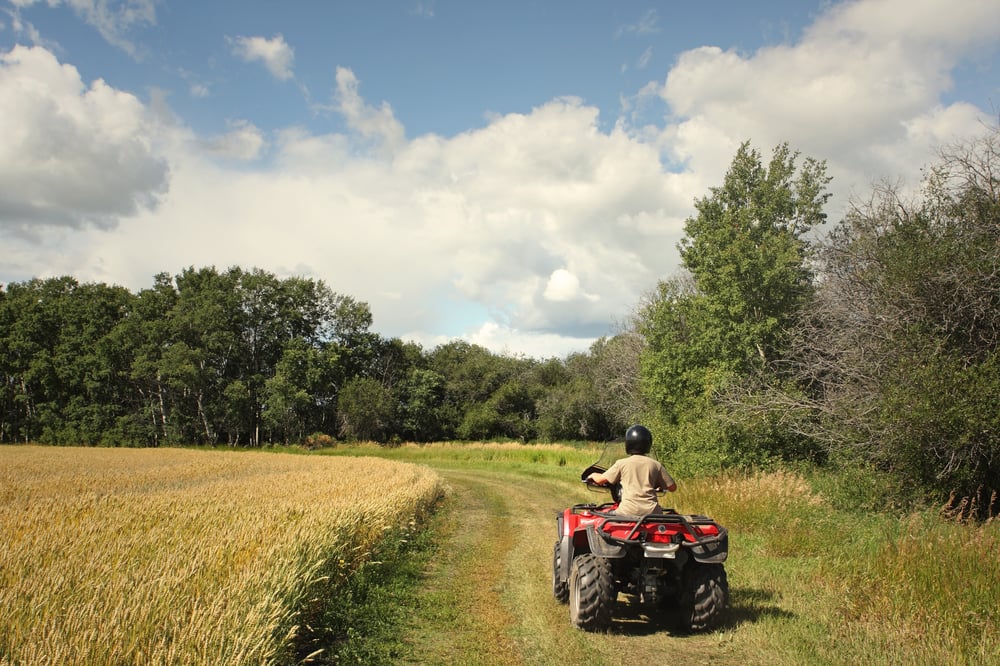
What would rural life be without a pickup truck? The pickup has become synonymous with country living for a reason. It’s built to haul, tow and run rough. If you don’t have one already, a four-wheel drive pickup should be at the top of your rural living list.
All-terrain vehicles (ATVs) and utility-terrain vehicles (UTVs) are incredibly useful for rural living. But just because they’re handy doesn’t mean they can’t be fun. There are loads of options when it comes to off-roading. These fun and fast vehicles can meet your need to slosh through the mud, rough it out on the trail or get down to work.
It may seem like a long list, and the right tools aren’t cheap, but Johnson looks at it this way: “It’s all about time and quality of life. That’s why people move out to the country. What they end up doing is they spend all their time, energy and resources trying to maintain it because they won’t spend the money to get the tools necessary to have the recreational lifestyle. You don’t want it to work you to the point where you hate it.”


